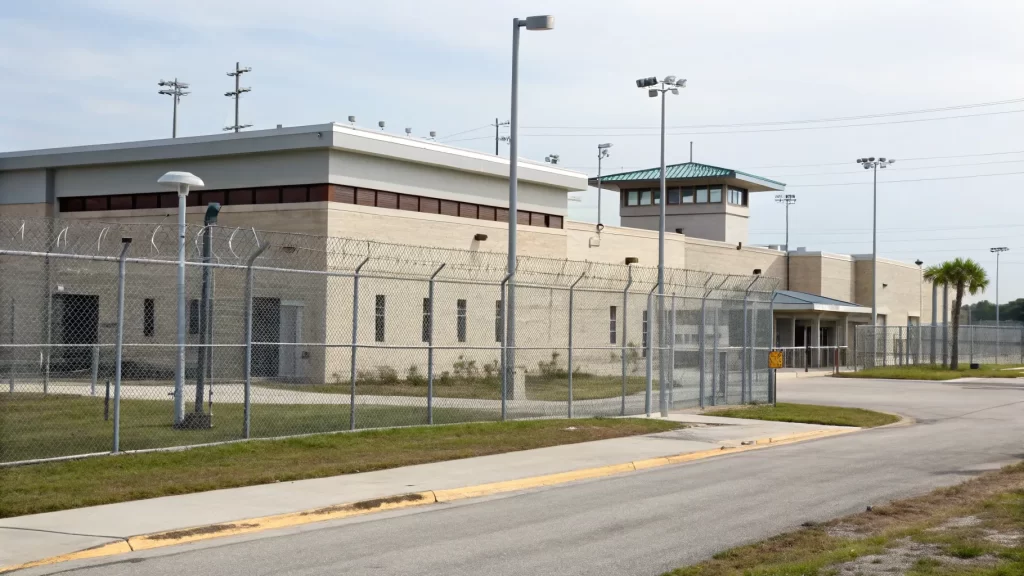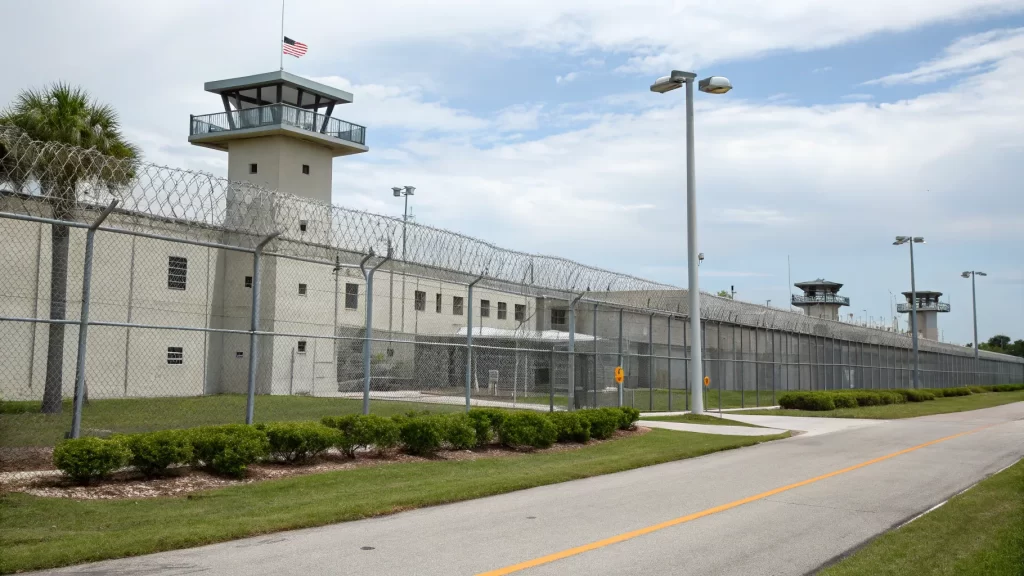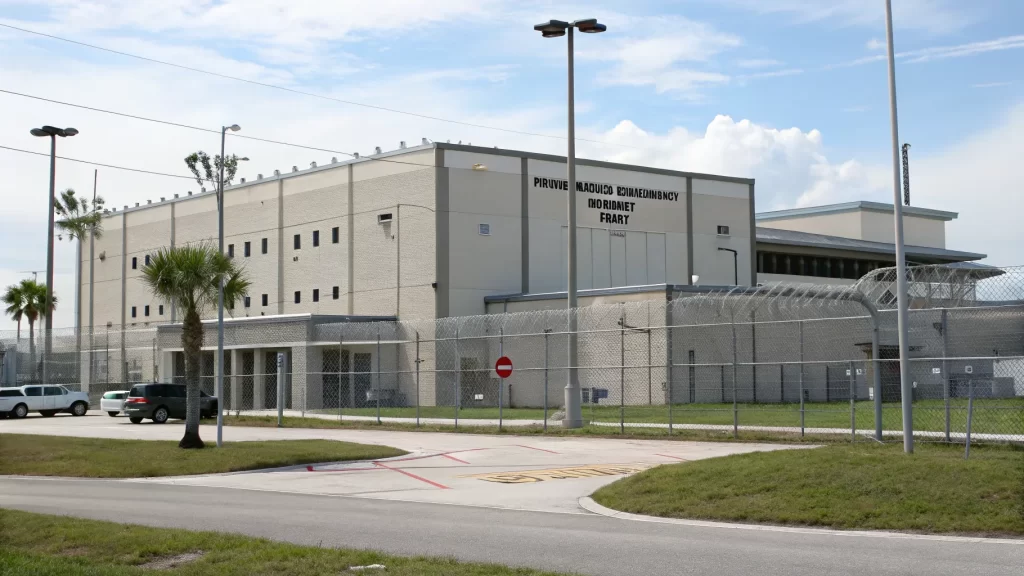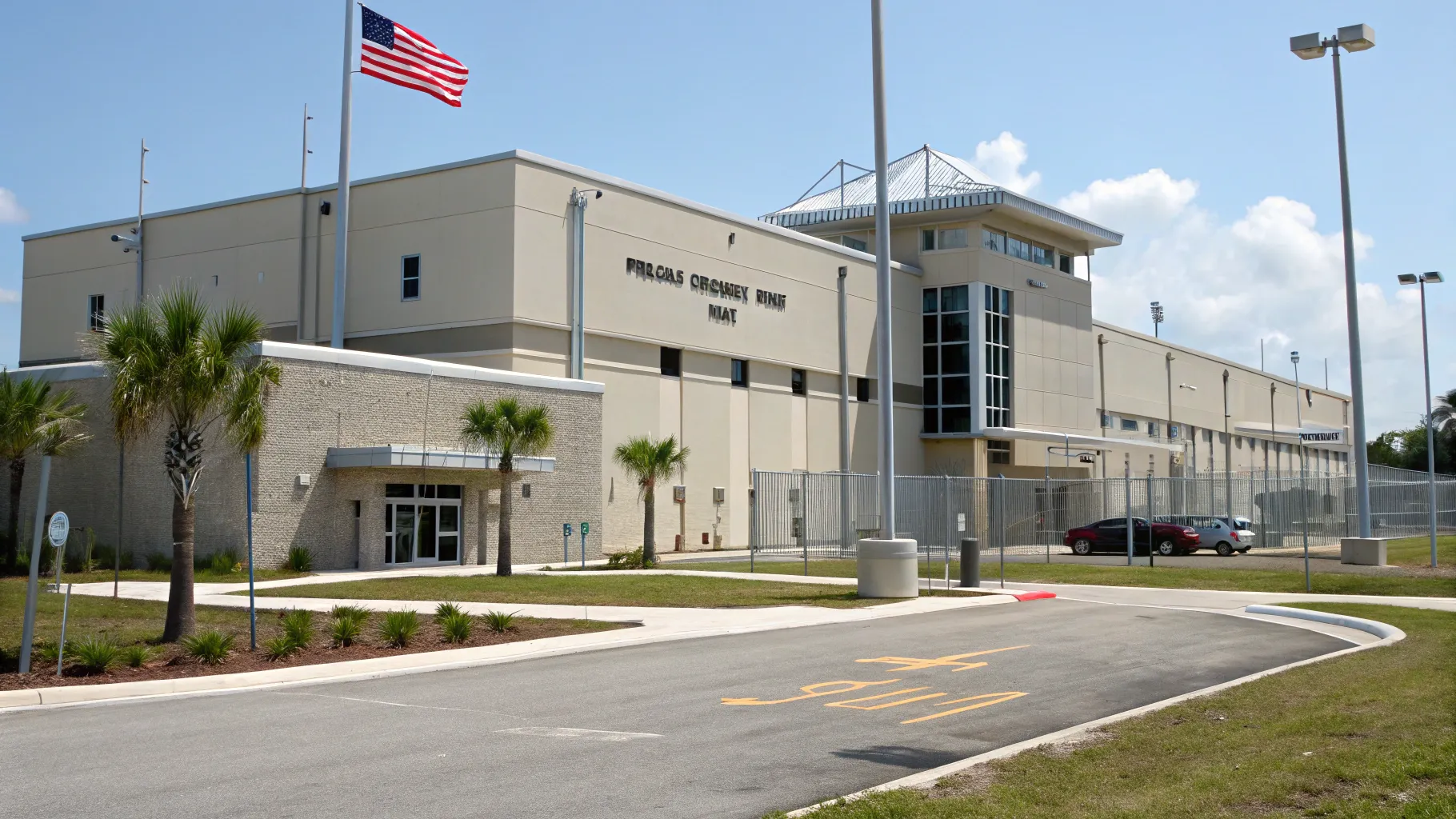Table of Contents
Pinellas County Jail
What is the Pinellas County Jail?
Who’s in jail in Pinellas County? It is an important correctional facility in Clearwater, Florida. It serves as the main detention center for people arrested in the county. The Pinellas County Sheriff’s Office handles the jail.
It holds various inmates, including those waiting for trial and those serving time for misdemeanors or felonies. Its location at 14400 49th Street North, Clearwater, Florida, is central to the region’s criminal justice system.
Location and Facility Overview
The jail is an important part of Pinellas County’s justice system. It can hold many detainees. The facility has different housing units for pretrial detainees and sentenced individuals. It also provides services for rehabilitation. Inmates can access health care, education programs, and mental health services.
Purpose and Function of Pinellas County Jail
Pinellas County Jail securely detains people who have been arrested. They are either awaiting trial or serving short sentences. The jail upholds public safety and ensures an efficient legal process. This includes court hearings, rehabilitation programs, and pretrial detention.
Finding Inmates in Pinellas County Jail

Online Search
Use the Inmate Locator tool on the Pinellas County Sheriff’s Office website to see if someone is in Pinellas County Jail. Just enter the inmate’s first and last name or booking number. You’ll quickly find details like their charges, bail amount, and projected release date. This tool is updated regularly, ensuring users get the most accurate and current information.
Phone Search
Call the Pinellas County Jail at (727) 453-7117 if you prefer speaking to someone directly. When you call, you must provide the inmate’s full name, date of birth, or booking number to get the necessary information. The jail staff will be able to assist you in locating an inmate and provide details about their charges, bond status, and more.
In-Person Search
If you prefer to handle things in person, visit the Pinellas County Jail at 14400 49th Street North, Clearwater, FL 33762. You can also go to the Pinellas County Justice Center. At the information desk, a rep can help you with inmate searches and provide the individual’s status.
Also Read: If Music Be the Food of Love: Exploring Shakespeare’s Quote
Third-Party Websites
You can also use third-party sites like VINELink. This service lets you check an inmate’s status in Pinellas County Jail. While these sites offer useful information, it’s crucial to verify it. Check the official Pinellas County Sheriff’s Office website for the latest and most accurate info.
Inmate Roster
The Pinellas County Jail’s Inmate Roster is accessible online via the Sheriff’s Office website. The roster lists current inmates. It includes their full name, booking number, charges, bond amounts, jail location, and expected release date. This list helps the public stay informed about who is in custody within Pinellas County.
Physical Arrests
You can view a list of physical arrests in Pinellas County. However, this list is not complete. It won’t show any releases that did not lead to an arrest. Juvenile arrest records are confidential and unavailable for public viewing, in line with privacy laws.
Pinellas County Jail Information

Location
Pinellas County Jail is located at 14400 49th Street North, Clearwater, Florida 33762-2877. This central location allows law enforcement, families, and legal reps easy access.
Contact Information
For inquiries about inmates, you can call 727-464-6415 directly. This number connects you to the jail’s main office for general inquiries or further information on inmate searches.
Visitation
Pinellas County Jail has a video visitation system, meaning all inmate visitations must be conducted via video. Visitors can schedule these visits in advance by visiting or by calling 727-464-6842. This system is in place to ensure both safety and efficiency while limiting in-person visits.
Mailing Address
Address mail to an inmate using their full name, docket number, and housing assignment. This ensures it reaches them. The address is Pinellas County Jail, 14400 49th Street, North Clearwater, FL 33762-2877.
Also Read: How Much Does a Parrot Cost? Price Guide for Potential Owners
Inmate Services
The jail provides several services for inmates. They can buy food and hygiene items at the commissary. Phone calls allow them to stay in touch with loved ones.
Inmates can also receive money deposits. Additionally, the jail offers educational and rehabilitation programs. These programs help inmates reintegrate into society after their release.
Types of Criminal Cases
Felonies
Felonies are serious crimes punishable by more than one year of imprisonment. Common felony charges include drug trafficking, murder, armed robbery, and sex crimes. Those with felony charges often spend time at Pinellas County Jail before their trial or transfer to a higher-security prison.
Misdemeanors
Misdemeanors are less severe than felonies. But they carry penalties of up to one year in jail. Examples of misdemeanors include petty theft, vandalism, and simple assault. Typically, county courts in Pinellas County handle these types of cases.
Criminal Traffic
Driving Under the Influence (DUI) is a criminal traffic violation that requires an appearance in court. Offenders may face jail time, fines, and other penalties. Inmates charged with DUI or other criminal traffic offenses may be detained in Pinellas County Jail.
Juvenile Cases
Juvenile cases in Pinellas County are separate. They include delinquency (minor offenses) and dependency (abuse or neglect cases). Juvenile records are confidential and unavailable to the public, which helps protect the privacy of minors’ privacy.
Pinellas County Court System
Clerk of the Circuit Court
The Clerk of the Circuit Court is an elected official responsible for maintaining court records. This includes records for criminal, juvenile, traffic, and civil cases. They also manage processing legal documents, fees, and fines within the Pinellas County Court system.
Appeals
Decisions made in lower courts in Pinellas County can be appealed to a higher court. Most criminal cases are appealed to the 2nd District Court of Appeals. A panel of judges checks them for legal errors that might have changed the trial’s outcome.
Payment Plans
The Clerk’s office offers payment plans for individuals who cannot afford to pay court fines or filing fees in full. A one-time fee of $25.00 is required to set up a payment plan, which helps ease the financial burden for individuals involved in criminal cases.
Public Defender
If an individual cannot afford an attorney in a criminal case, they may be eligible for a Public Defender. However, there is a non-refundable $50 application fee to apply for this service. The Public Defender’s Office provides legal representation to ensure all individuals have fair trial access.
Victim’s Rights

Legal Rights of Crime Victims
Florida law grants certain rights to crime victims under Chapter 960, Florida Statutes. These rights include the ability to be present and informed at crucial stages of the criminal justice process. Victims also have the right to be heard during proceedings like bail hearings or sentencing.
Protection for Victims
Victims are entitled to be free from threats, intimidation, and harassment by the accused or their associates. If needed, law enforcement can protect victims and witnesses during the legal process.
Read Also: How Much Does a Hot Tub Cost? Your Guide to Hot Tub Prices
Right to Restitution
Victims have the right to restitution. They can seek compensation for financial losses caused by the crime. This can include medical bills, property damage, or lost wages due to the offense.
Victim Assistance Programs
Some programs help crime victims with expenses. These expenses include medical and dental bills, burial costs for crime victims, and relocation for those fleeing unrest. Victims may also receive help with mental health counseling to cope with the emotional aftermath of the crime.
Overview of Pinellas County Jail
Pinellas County Jail plays a key role in the county’s criminal justice system. It provides a secure and well-managed facility for detainees. The public can use online and phone resources to check if someone is in jail. They can also access court information and learn about their rights as crime victims.
The jail faces challenges like overcrowding and inmate care. Still, it offers essential services that help keep the public safe and support the rehabilitation of offenders.




